
Sleep is one of the most vital aspects of human health, yet for millions of people around the world, getting a restful night’s sleep feels like an impossible dream. You may find yourself tossing and turning, staring at the ceiling, or waking up repeatedly throughout the night. While stress, environment, and lifestyle often play roles in poor sleep, what you eat and drink can also have a profound impact on the quality of your rest.
The connection between diet and sleep is not just an old wives’ tale—it’s backed by science. Many of us unknowingly sabotage our rest with the foods we eat throughout the day. Certain foods may seem harmless on the outside, but they can have a serious impact on your sleep quality and make it challenging to fall or stay asleep.
Fortunately, understanding these hidden saboteurs is the first step toward reclaiming your nights. We’ll delve into some common dietary choices that experts identify as secret disruptors of healthy sleep, exploring the mechanisms through which they interfere with your body’s natural rhythms. By understanding these links, you can make smarter choices that support better rest and pave the way for restorative slumber.
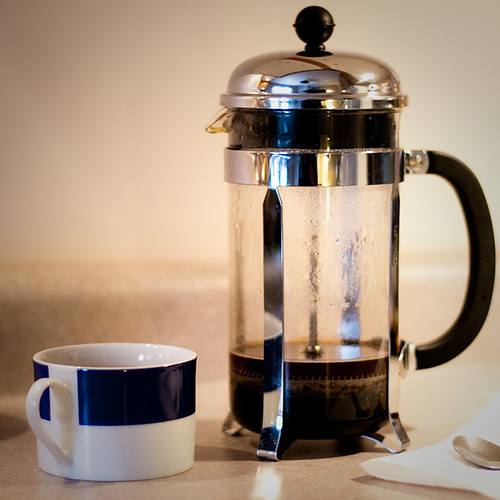
1. Caffeine
Caffeine is perhaps the most obvious sleep disruptor, widely known for its stimulating effects. Yet, its insidious nature often lies in its hidden presence within various foods and beverages beyond the morning coffee. As nutrition expert Melissa Mitri, RD, explains, ‘Anything containing caffeine can act as a stimulant that blocks adenosine, a chemical that promotes sleep.’ This blocking action is precisely what keeps your brain alert, making it challenging to transition into a restful state and effectively delaying your natural sleep cues.
The consequences of caffeine consumption too close to bedtime are well-documented. It significantly impacts your ability to fall asleep, delays the timing of your internal clock, and reduces your total sleep time. A comprehensive 2023 meta-analysis published in *Sleep Medicine Reviews* provided compelling evidence, revealing that drinking caffeine can diminish total sleep time by an average of 45 minutes and reduce overall sleep quality by seven percent. The study further noted that caffeine led to an extra nine minutes to fall asleep and caused 12 more minutes of wakefulness after initially drifting off to sleep, highlighting its disruptive power.
Individual sensitivity to caffeine can vary greatly, with some people experiencing more pronounced effects, especially as they age. Mitri strongly advises stopping caffeine consumption at least eight hours before bed to ensure it doesn’t interfere with your sleep quality. This recommendation extends beyond obvious sources like coffee and tea to include less apparent culprits. It’s crucial to diligently track hidden caffeine sources, such as sodas, chocolate, and energy drinks, throughout the day to prevent unwanted interruptions to your delicate sleep cycle and safeguard your precious nightly rest.
Read more about: Unlock Your Inner A-Lister: 14 Secret Routines Famous Actors Use to Master Pages of Dialogue!
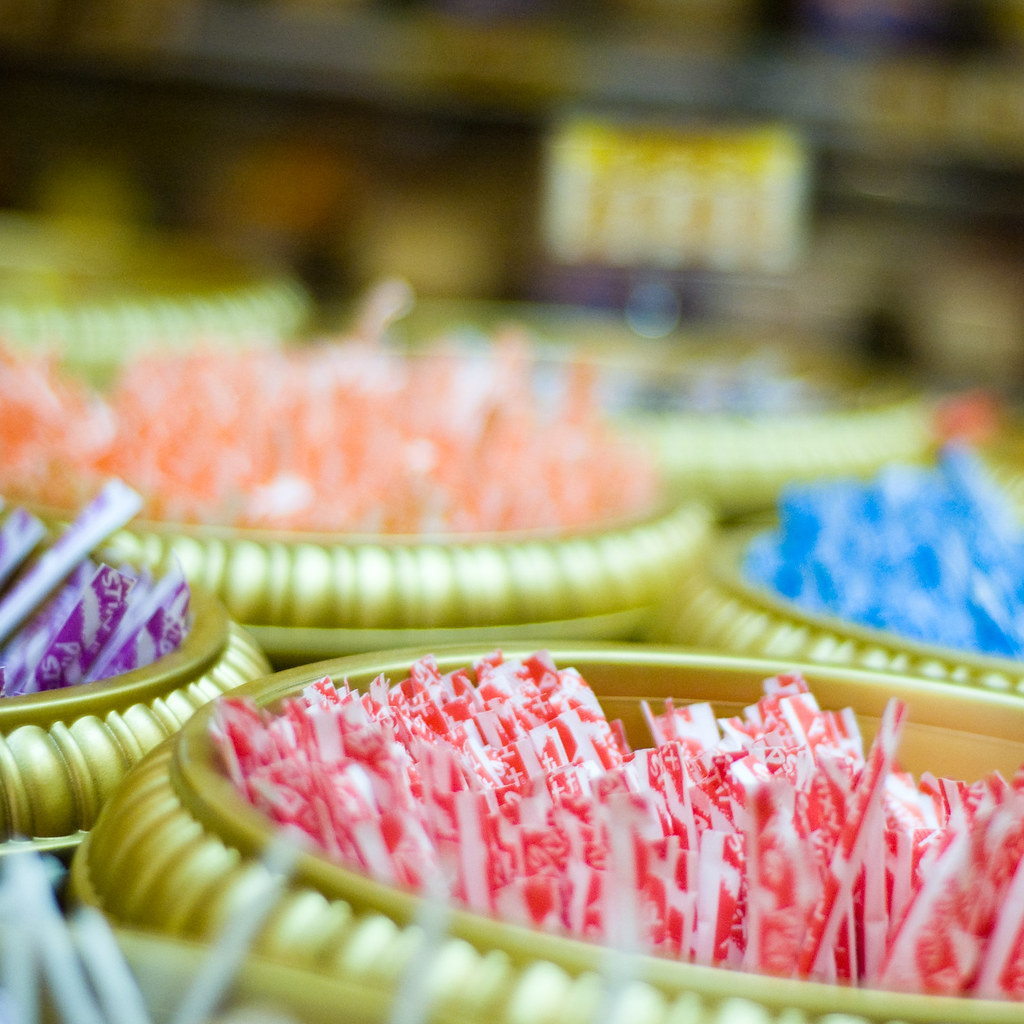
2. Sugary Foods and Drinks
While a sweet treat might seem like a comforting end to your day, indulging in sugary foods and drinks after dinner could be doing more harm than good to your sleep. Far from being a harmless pleasure, research consistently demonstrates a direct connection between increased sugar consumption and compromised sleep quality. Melissa Mitri, RD, highlights this, stating, ‘One study found that a high intake of sugary foods and drinks is associated with shorter sleep duration,’ underscoring the detrimental impact these common items can have on your nightly rest.
Beyond simply shortening sleep duration, sugar actively interferes with your body’s delicate internal balance while you’re trying to sleep. The primary mechanism involves significant blood sugar fluctuations. According to Mitri, ‘Consuming too much sugar can cause blood sugar to spike in the middle of the night, especially when consumed close to bedtime.’ This sudden surge in blood glucose is a critical disruption that your body registers as a stressor, activating physiological responses that work against restful sleep.
These blood sugar spikes have a cascade of negative effects on your sleep architecture. They increase the likelihood of waking up during the night as your body attempts to regulate itself, making you feel more alert when you should be in a deep slumber. Furthermore, these fluctuations can elevate cortisol levels—the ‘fight-or-flight’ hormone. This increase in cortisol charges your body into action rather than allowing it to wind down, creating an internal environment antithetical to peaceful, uninterrupted sleep.
Read more about: From Camelot’s Kitchen to Your Table: Unraveling JFK’s Favorite Waffles and the Modern Food Revolution
3. Alcohol
The perception that alcohol helps you sleep is a widespread misconception, as its effects on sleep quality tell a markedly different story. While a nightcap might initially induce a feeling of relaxation and prompt you to fall asleep faster, studies consistently show that alcohol significantly disrupts your sleep once its initial sedative effects wear off. Melissa Mitri, RD, explains this paradox succinctly: ‘Even though alcohol may help you fall asleep faster, it can lead to fragmented sleep,’ meaning your sleep is constantly interrupted and less restorative.
This fragmentation is critical; instead of enjoying continuous, restorative sleep cycles, your sleep is repeatedly interrupted and less effective. You might spend hours in bed, but the quality of that sleep is severely compromised, preventing your body and brain from undergoing the essential repair and consolidation processes necessary for true rest and rejuvenation. Alcohol inhibits entry into the deeper, most restorative stages of sleep, leaving you feeling tired even after a full night in bed.
Furthermore, specific populations are particularly vulnerable to alcohol’s sleep-wrecking properties. A recent review published in *Maturitas* highlighted that alcohol can notably worsen sleep for women, especially those navigating the physiological shifts of perimenopause or menopause. Mitri further elaborates that ‘Any level of alcohol consumption can increase night sweats and cause anxious thoughts, which severely affect sleep quality.’ These uncomfortable physical symptoms and mental distress actively impede restful slumber, transforming what appears to be a soothing drink into a profound barrier to genuinely restorative sleep.
Read more about: Beyond the Blink: Unpacking the Mind-Blowing Life Cycles and Secrets of Stars, From Birth to Cosmic Demise
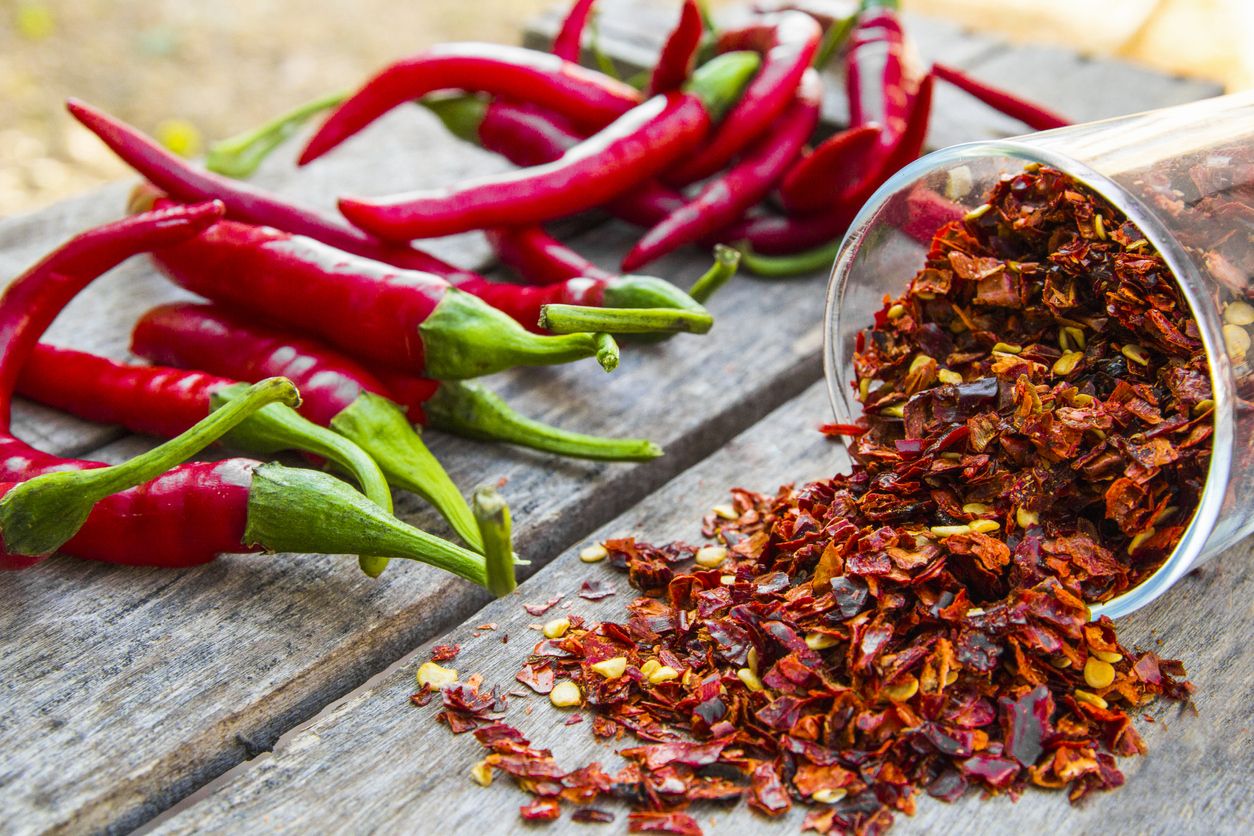
4. Spicy Foods
That tempting late-night craving for spicy food might feel satisfying in the moment, but it often proves to be a double-edged sword when it comes to your sleep. The *Sleep Foundation* points out that these fiery dishes can trigger significant digestive issues, which directly hinder your ability to achieve restful sleep. The discomfort and physiological upset they cause are substantial barriers to falling and staying asleep comfortably, as your body is forced to contend with digestive stress rather than unwind.
For individuals already prone to gastrointestinal sensitivities, spicy foods pose an even greater threat. Melissa Mitri, RD, clarifies, ‘Some people who struggle with acid reflux find that spicy or acidic food, while seemingly healthy, can disrupt sleep and increase symptoms.’ This disruption is often exacerbated when you lie down to sleep, as gravity no longer aids in keeping stomach acids contained. The sensation of heartburn, indigestion, and acid reflux can make it virtually impossible to find a comfortable position, let alone drift off into deep sleep, forcing your body to remain in a state of mild distress.
Moreover, the challenges extend to those with conditions like irritable bowel syndrome (IBS). Mitri advises that ‘those living with irritable bowel syndrome (IBS) may need to avoid overly fibrous foods in the evening, as these foods can exacerbate digestive symptoms.’ The combination of strong capsaicin, which gives spices their heat, and potential fiber content can create a perfect storm of digestive distress. Briana Rodriquez, RDN, reinforces these warnings, noting that strong spices cause heartburn and indigestion that ‘tend to worsen when you lie down.’ Her practical advice is to enjoy such dishes earlier in the day, allowing your body ample time to digest them comfortably before bedtime.
Read more about: Beyond the Boardroom: 14 Unconventional Rules Billionaires Set for Their Children
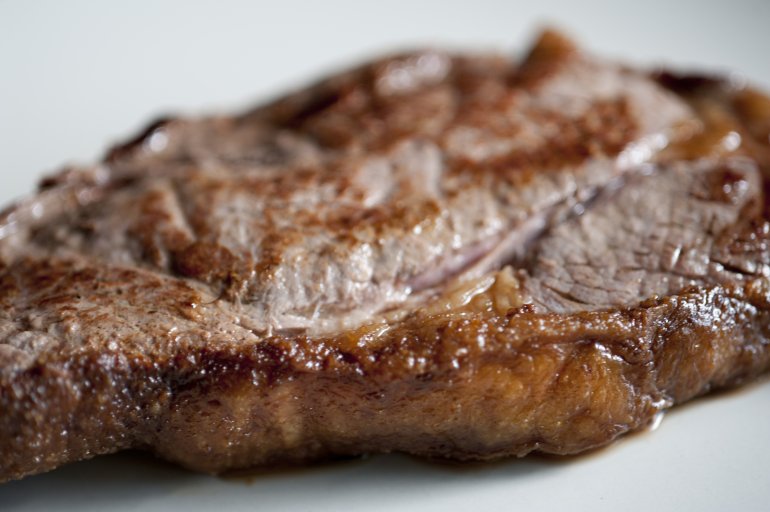
5. Fatty Foods
Consuming heavy, greasy foods, particularly in the hours leading up to bedtime, is a direct pathway to uncomfortable and restless nights. These types of meals are notoriously tough on the digestive system, demanding significant physiological effort from your body at a time when it should be preparing for rest. Instead of allowing your systems to wind down, a large intake of fatty foods forces your body to work overtime, creating an internal environment fundamentally at odds with achieving quality sleep.
Scientific literature consistently reinforces this observation, demonstrating that foods high in fat — such as fried foods, rich sauces, or fatty cuts of meat — require substantially longer to digest compared to lighter, nutrient-dense options. This extended digestive process is particularly problematic when you transition from an upright position to lying down. The physical act of reclining can exacerbate feelings of fullness and discomfort, often leading to bloating, indigestion, and a general sense of unease that makes falling and staying asleep incredibly difficult.
Melissa Mitri, RD, offers a clear explanation of this challenge, stating, ‘Eating a large, fatty meal close to bedtime can delay stomach emptying and keep you from falling asleep easily.’ This delay means your digestive tract is still actively working when your body and brain are trying to shift into sleep mode. The sustained activity prevents your core body temperature from dropping adequately and keeps your metabolic processes engaged, both of which are critical for initiating and maintaining deep, restorative sleep cycles. Briana Rodriquez, RDN, underscores this, advising a shift towards high-protein, low-fat dinners for better rest, as lighter meals are easier to digest, promoting relaxation.
Read more about: Your Car’s Hot Seat: 14 Everyday Essentials That Become Hazards in Summer Heat

6. Highly Processed Foods
Often targeted for their links to weight gain and various chronic health conditions, highly processed foods represent another significant, yet often overlooked, adversary to quality sleep. These ubiquitous items, which include anything from packaged snacks and instant meals to certain breakfast cereals, are engineered for convenience and palatability but frequently come at the cost of nutritional integrity and, critically, sleep health. Their widespread consumption means they are stealthily undermining the restful nights of millions, without many even realizing the connection.
A compelling 2023 meta-analysis published in *Nutrition* sheds considerable light on the specific components within these foods that contribute to sleep disturbances. The research indicates that highly processed foods are consistently ‘laden with excess sugar, unhealthy fats, and artificial ingredients.’ This trio of detrimental components creates a physiological environment that is inherently disruptive to the delicate balance required for sound sleep. Each element, from rapidly absorbed sugars to inflammatory fats and synthetic additives, contributes to an internal state of disquiet.
The cumulative effect of these unhealthy constituents is their profound ability to ‘disturb your body’s natural sleep rhythms.’ This isn’t just about feeling restless; it refers to a disruption of the intricate interplay of hormones, neurotransmitters, and cellular activities that govern your sleep-wake cycle. By regularly consuming foods that are so far removed from their natural state and packed with disruptive elements, you are inadvertently sending confusing and often stressful signals to your system, making it challenging for your body to perform the essential repair and restoration work that occurs during sleep.
Read more about: Unlock Pain-Free Leg Days: Your Guide to the Best Exercises for Stronger, Healthier Knees
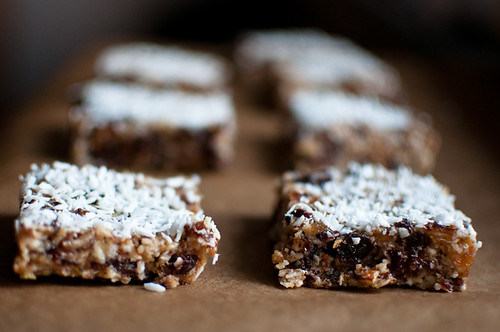
7. Energy Bars and Pre-Workout Snacks
Often marketed as convenient health boosters or performance enhancers, energy bars and pre-workout snacks can be secret saboteurs of your nightly rest. While they promise a quick surge of vitality, their carefully engineered formulas frequently contain an array of ingredients designed to stimulate, not soothe. This makes them particularly problematic when consumed too close to the evening hours, stealthily interfering with your body’s natural wind-down process and making it challenging to prepare for sleep.
The disruptive power of these products often stems from their hidden stimulants and fast-acting energy sources. Melissa Mitri, RD, specifically cautions that “Hidden sources of caffeine, like in chocolate or certain energy bars, can disrupt your sleep without you realizing it.” Beyond caffeine, many are loaded with rapidly absorbed sugars and other performance-enhancing compounds such as guarana or various amino acids designed to boost alertness. These potent ingredients are far from conducive to relaxation, actively working against the physiological cues your body needs to naturally transition into a restful state.
Consuming even small amounts of these stimulating and sugary components late in the day can have a tangible and immediate impact on your sleep architecture. They can make it significantly harder to fall asleep, extending the time you spend tossing and turning by delaying the onset of sleep. Moreover, these energy-dense snacks can compromise the depth and continuity of your sleep, leading to frequent awakenings and a less restorative rest that leaves you feeling groggy the next morning. Your body is tasked with processing these stimulating elements when it should be repairing and consolidating memories.
Mitri strongly stresses the importance of diligent tracking, advising, “it’s important to track your intake and determine what may be impacting your sleep.” This involves scrutinizing ingredient labels for hidden caffeine or excessive sugars, especially if you experience persistent sleep issues. By consciously choosing to avoid these stimulating options in the hours leading up to bedtime, you can prevent inadvertently sabotaging your slumber with a seemingly healthy, but ultimately disruptive, choice.
Read more about: Are You Eating Poison? Unmasking 14 Everyday ‘Healthy’ Foods That Might Be Hiding More Than You Think!
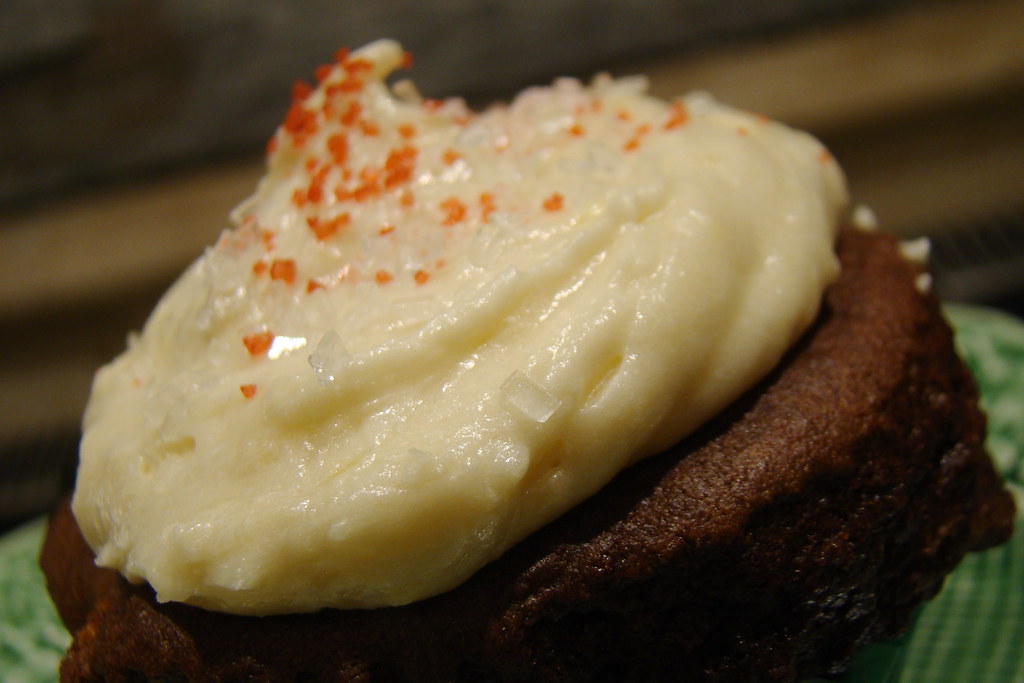
8. Dark Chocolate
For many, dark chocolate is a beloved indulgence, often lauded for its antioxidant benefits and rich flavor. However, despite its health halo, this delightful treat harbors a stimulant that can stealthily impede your journey to dreamland. While it’s a fantastic source of beneficial compounds, its natural caffeine content makes it a covert culprit for disturbed sleep, especially when enjoyed in the late evening hours.
Just like coffee or tea, the caffeine naturally present in dark chocolate acts as a stimulant within your system. The concentration of caffeine directly correlates with the cocoa content; the darker the chocolate, generally the higher the percentage of cocoa, and consequently, the higher the caffeine level per serving. This means that a generous square or two after dinner can deliver a surprising jolt, keeping your brain more alert and active than you might anticipate. Briana Rodriquez, RDN, echoes this sentiment, reminding us that it “can act as a stimulant that keeps you awake.”
This stimulating effect directly counteracts your body’s natural wind-down process. Instead of producing adenosine, the chemical that promotes sleep, your brain is encouraged to stay active, delaying sleep onset and potentially disrupting your sleep architecture. The stimulating compounds can increase brain activity, making it difficult to achieve the relaxed state necessary for falling asleep, resulting in restless tossing and turning rather than peaceful slumber.
To prevent this seemingly innocent pleasure from turning into a nocturnal nuisance, timing is everything. While you don’t necessarily need to eliminate dark chocolate from your diet entirely, being strategic about when you consume it can make a world of difference for your sleep quality. To satisfy your sweet tooth without sacrificing your precious rest, Rodriquez’s practical advice to “Enjoy your chocolate treat earlier in the evening” is a smart practice, allowing your body ample time to process the caffeine before bedtime.
Read more about: From Box Office Busts to Beloved Binges: 15 Movie Flops That Became Timeless Cult Classics

9. Pizza
The allure of a warm, cheesy pizza for a late-night meal is undeniably strong, offering comfort and convenience after a long day. Yet, this beloved comfort food can quickly transform into a recipe for restless nights. Beyond its often high-fat content, pizza frequently combines several ingredients that create a perfect storm of digestive distress, making it a significant disruptor to quality sleep and leaving you feeling far from rested.
A primary issue with pizza lies in its tomato sauce, which is inherently acidic. Briana Rodriquez, RDN, explains this clearly: “Delicious, I know! But pizza has tomato sauce on it which is acidic and can lead to an upset stomach.” This acidity, particularly when combined with rich cheeses and often spicy toppings like pepperoni or red pepper flakes, can aggressively trigger heartburn and acid reflux. These uncomfortable symptoms are notoriously worse when you lie down to sleep, as gravity no longer helps keep stomach acids contained, leading to severe discomfort and an inability to find a peaceful resting position.
Furthermore, certain pizza toppings, especially cured meats like pepperoni and salami, are rich in tyramine. This amino acid is known to boost brain activity, adding another layer to pizza’s sleep-wrecking potential. When strong spices are also present, like those in red pepper flakes, they introduce capsaicin, which can elevate body temperature and further irritate the digestive tract. The cumulative effect of acidity, heat from spices, and tyramine creates a physiological environment that is fundamentally at odds with preparing your body for a night of restorative sleep.
The combination of these factors makes a late-night pizza a truly challenging meal for your digestive and nervous systems to process while trying to prepare for rest. Your body is forced to expend energy on digestion and combat discomfort, rather than winding down. Rodriquez’s practical recommendation is emphatically to “Save this comfort food for lunch instead of dinner,” allowing your body sufficient time—several hours—to digest it completely and mitigate any adverse effects before you hit the hay.
Read more about: Unlock Your Inner A-Lister: 14 Secret Routines Famous Actors Use to Master Pages of Dialogue!
10. Sugary Sodas
Sugary sodas are ubiquitous and often consumed without much thought, yet they represent a significant threat to your sleep quality. Far from being a harmless beverage, these drinks are double-whammy disruptors, packing a potent combination of sugar and, surprisingly, caffeine that can profoundly interfere with your body’s natural sleep-wake cycle. Their widespread availability makes them a common, often unacknowledged, saboteur of restful nights, impacting millions of people who struggle with sleep.
The adverse impact of sugary sodas stems from two key components that actively work against your body’s sleep mechanisms. Firstly, the high sugar content leads to rapid blood sugar spikes, which can trigger hormonal responses that disrupt sleep by waking you up during the night and increasing levels of cortisol—the “fight-or-flight” hormone. Secondly, many popular sodas, even those not explicitly marketed as energy drinks, contain caffeine. This stimulant keeps your brain alert and active precisely when it should be winding down, making it exceptionally challenging to initiate sleep and maintain its necessary depth and continuity.
Briana Rodriquez, RDN, issues a stern warning against consuming soda before bed, explaining that it “slows digestion and encourages your body to store calories instead of burning them.” This means your body is actively working on digestion and metabolism—processes that require energy—when it should be transitioning into a state of rest and repair. The sustained metabolic activity prevents your core body temperature from dropping adequately, a critical step for initiating deep sleep cycles.
The combined effect of elevated energy levels from caffeine and sugar, coupled with a sluggish digestive system, creates an internal environment entirely at odds with achieving peaceful, uninterrupted sleep. Instead of reaching for a sugary soda, consider healthier, sleep-friendly alternatives. Rodriquez suggests “green tea or sparkling water as lighter alternatives that won’t interfere with your rest” when seeking an afternoon boost, emphasizing the importance of making conscious choices to protect your nightly slumber.
Read more about: Totally Rad or Totally Retrograde? 15 Wild ’80s Moments That Were Basically Forgotten Comedy Gold
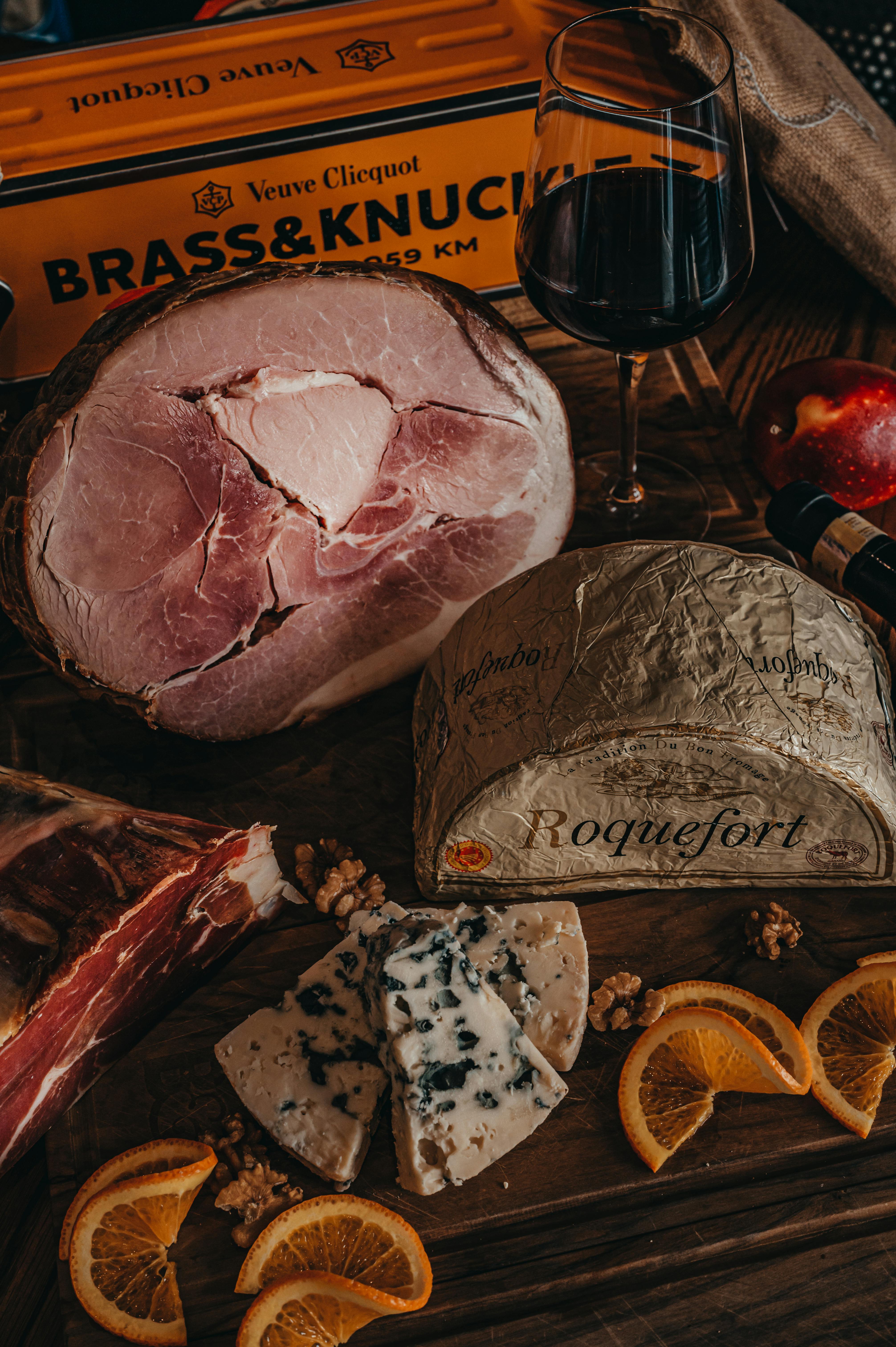
11. Cured Meats and Aged Cheeses
While a charcuterie board might seem like a sophisticated evening snack, cured meats and aged cheeses can surprisingly disrupt your sleep. These flavorful items, often enjoyed as appetizers or late-day treats, contain an amino acid called tyramine that can rev up your brain activity, leaving you feeling wired instead of winding down. They are a classic example of foods that are perfectly fine earlier in the day but become problematic as bedtime approaches due to their stimulating properties.
Tyramine, an amino acid formed during the aging or fermentation process of certain foods, plays a significant role in stimulating the release of norepinephrine. Norepinephrine is a neurotransmitter that acts as a natural stimulant, increasing alertness and heart rate. This means consuming tyramine-rich foods can boost brain activity and increase overall physiological arousal, creating an internal state that is counterproductive to sleep. Instead of feeling relaxed and ready for rest, you might find yourself feeling surprisingly energetic, restless, or even anxious, making it difficult to settle into slumber.
Common examples of tyramine-rich foods extend beyond just pepperoni and salami to include various cured meats such as bacon, ham, and even some processed luncheon meats. A wide array of aged cheeses, including sharp cheddar, Swiss, Parmesan, blue cheese, and provolone, also contain notable levels of tyramine. These ingredients are frequently found in popular dishes and snacks, making their presence near bedtime a common, yet often unrecognized, obstacle to quality sleep.
While these can be excellent additions to a midday meal or a snack consumed many hours before sleep, eating them too late in the evening can leave you feeling too alert and stimulated to drift off peacefully. Therefore, to ensure a smooth transition to sleep and avoid unnecessary brain activity, it’s wise to enjoy these items well earlier in the day. Allowing your body ample time to process the tyramine before your head hits the pillow is a simple yet effective strategy for protecting your nightly rest.
Read more about: America’s Ultimate Sandwich Showdown: 15 Top Picks for Unbeatable Ingredient Freshness
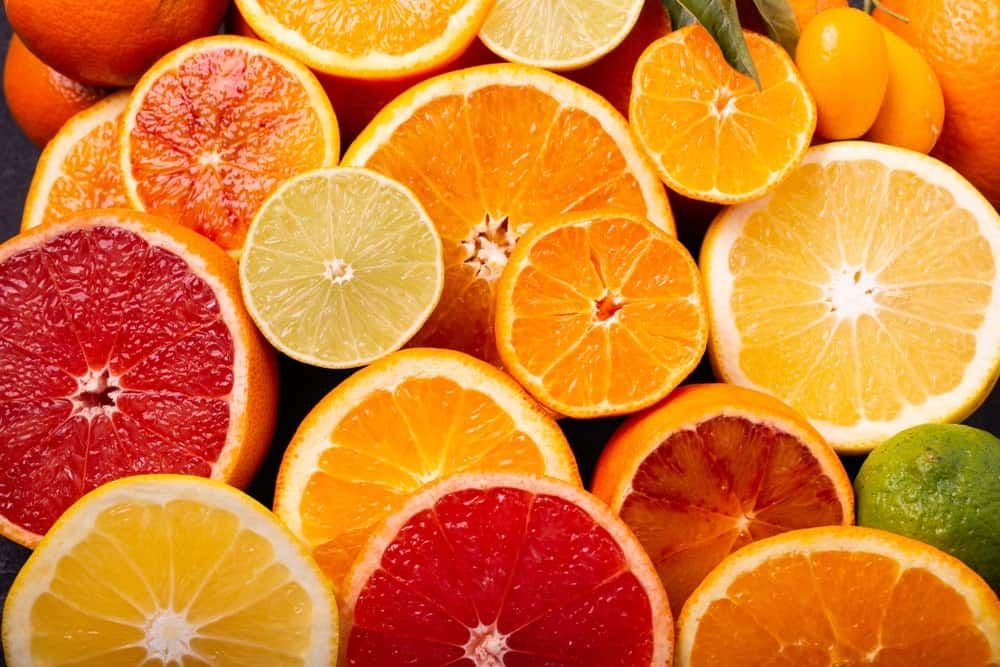
12. Citrus Fruits
Citrus fruits, celebrated for their vibrant flavors and high vitamin C content, are undoubtedly a healthy addition to any diet and contribute positively to overall well-being. However, the timing of their consumption can significantly impact your sleep quality, especially if enjoyed too close to bedtime. While beneficial for general health, indulging in oranges, grapefruits, or lemons late in the evening can lead to unwelcome interruptions throughout the night, preventing you from achieving truly restorative rest.
The primary reason citrus fruits can be problematic for sleep is their natural diuretic properties. A diuretic encourages the body to produce more urine, leading to an increased need for bathroom breaks. While this is a harmless process during the day, having to get up repeatedly during the night to urinate can severely fragment your sleep architecture. Each interruption pulls you out of deeper, more restorative sleep stages, making it harder to fall back asleep and preventing your body and brain from completing essential repair and consolidation processes. This constant disruption hinders the achievement of continuous, high-quality slumber.
Furthermore, the inherent acidity of citrus fruits, similar to the tomato sauce found in pizza, can also trigger or exacerbate symptoms of acid reflux or heartburn in sensitive individuals. This discomfort is particularly pronounced when lying down, as stomach acids can more easily travel up the esophagus without gravity’s assistance. This sensation of burning and indigestion adds another layer of challenge to achieving peaceful sleep, forcing your body to remain in a state of discomfort rather than relaxation.
To avoid these nocturnal disruptions and ensure your body is truly ready to rest, it is highly recommended to “Enjoy your oranges and grapefruits earlier in the day.” This allows your body ample time to process their diuretic and acidic components well before you settle down for the night. By making this simple dietary timing adjustment, you can significantly reduce the likelihood of sleep interruptions and pave the way for a more uninterrupted and profoundly restorative night’s rest.
**Conclusion**
Ultimately, the path to a truly restorative night’s sleep often begins with a mindful approach to your plate. The hidden culprits lurking in seemingly innocent snacks and meals can silently derail your body’s natural ability to wind down and repair. By understanding how these 12 dietary disruptors—from the obvious stimulants to the more subtle acidic or tyramine-rich options—interfere with your sleep cycles, you empower yourself to make informed decisions that safeguard your rest.
Making smarter choices isn’t about rigid restrictions but about strategic timing and ingredient awareness. Opting for lighter, easily digestible meals in the evening, carefully monitoring your caffeine and sugar intake, and being conscious of potential irritants can significantly improve your sleep quality. This proactive approach to your diet, coupled with other healthy sleep hygiene practices, can transform your nights from restless tossing and turning into peaceful, rejuvenating slumber.
Read more about: Seriously, Where Did They Go? 12 Iconic American Foods That Vanished From Our Tables
Embracing these dietary adjustments is a powerful step towards safeguarding your overall health and well-being. A well-rested body and mind are better equipped to tackle daily challenges, maintain a strong immune system, and enjoy life to its fullest. Your journey to better sleep is a journey toward a healthier, more vibrant you, starting with what’s on your fork.



